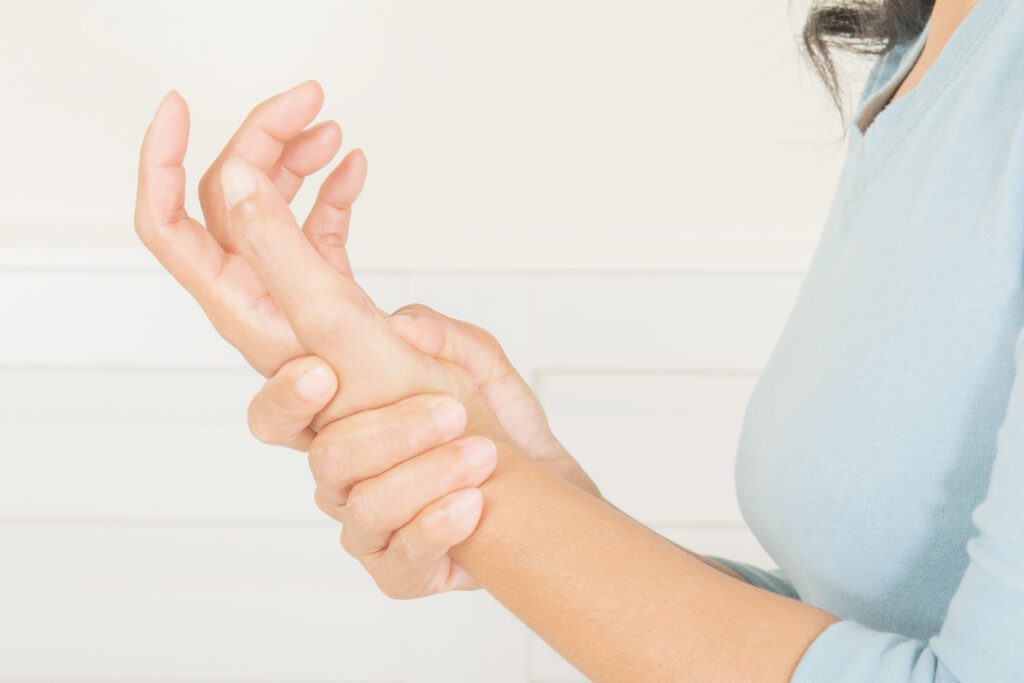Q. I am a 47-year-old female with worsening pain and mild swelling at the base of my thumb. My doctor told me it’s due to arthritis. What can be done to help the pain?
A. Arthritis at the base of the thumb (called basal joint arthritis) is a very common problem, especially in women. It can be seen as early as age 40, and patients often first report discomfort or pain with heavy gripping.

Over time, the symptoms progress and can lead to a constant dull pain, which can become sharp with motion. Treatment involves avoiding activities that worsen symptoms, but for those who continue to have pain, specific thumb braces, non-steroidal medications, and/or steroid injections may help. For those who still have severe pain after exhausting the above options, surgery can provide much relief.


Robert Mastey, MD
Upper Extremity Specialist, Center for Sports Medicine & Orthopaedics
Q. I’ve heard that boys should be vaccinated for HPV. Is that true?
A. HPV is a very common sexually transmitted virus. Nearly 80 million people (1 in 4) in the U.S. are currently infected, and approximately 14 million people, including teens, become infected with HPV each year.
The HPV vaccine is recommended for young men through age 21 and young women through age 26. All children who are 11 or 12 years old should receive two injections of the HPV vaccine, six to 12 months apart.
Most men who get HPV never develop symptoms, and the infection usually goes away on its own. However, if HPV does not go away, it can cause genital warts as well as anal and penile cancer. Easily spread during vaginal, anal, or oral sex, HPV can be spread even when an infected person has no visible signs or symptoms. And even though HPV cannot pass through latex condoms, it is frequently carried on skin not covered by condoms.
If HPV, the most common cause of cervical cancer and the most common sexually transmitted virus, is going to be combated over time, all parents should strongly consider having their young girls AND boys vaccinated
with the HPV vaccine.


John Adams, MD-OB/GYN
Obstetrician-Gynecologist, Women's Health Services
Q. My daughter developed an itchy rash after playing outside. I’ve told her not to scratch it, but what else can we do to help?
A. An itchy rash can cause discomfort for both parent and child. First, apply a cool wet compress or ice pack. If the rash is on several locations, soak in a lukewarm oatmeal bath – a hot shower or bath will worsen the itch. Calamine lotion will cool the skin, while any cream with pramoxine (like Gold Bond Medicated Anti-Itch Cream) will work as an anesthetic to ease the urge to scratch. Hydrocortisone cream is another option that is available without a prescription. Diphenhydramine (Benadryl) can be used topically or taken by mouth. Be aware that while Benadryl most often causes drowsiness, it can also cause agitation and other side effects in some individuals.


Do not take oral diphenhydramine without first consulting your pharmacist or medical provider. If the itchy rash still does not improve after trying these treatments, seek medical care for further evaluation.


Natasha Ballard, MD
Family Medicine Physician, AFC Urgent Care
Q. I’ve been experiencing pain and numbness in my dominant hand lately, and I can’t figure out what causes it. Is this something that will go away on its own?
A. One of the main reasons that people have pain and numbness in the hand is carpal tunnel syndrome (CTS). This is the result of nerve compression or tightness at the level of the wrist. You may feel like your fingers go to sleep, are numb, or have a ‘pins and needles’ sensation. Sometimes this follows driving, holding a cellphone to the ear, or you may just wake up in the morning with your hands feeling as though they’re still asleep.
Treatment ranges from anti-inflammatories and wrist splints to surgical release of the carpal tunnel in the operating room. Successful treatment often results in a durable resolution of the symptoms. A history and physical examination by your physician can help make the diagnosis, and a treatment plan can be initiated to make you feel better.


Jason Rehm, MD
Hand and Plastic Surgeon, The Plastic Surgery Group and Hayes Hand Center
Q. I’ve heard you need to get screened for glaucoma, but when should that start?
A. Glaucoma can affect people of all ages, but those who are over 40 and those with a family history are at higher risk. Glaucoma is often called the silent thief of sight because it lacks symptoms in its early stages. People do not become aware of the disease until a significant portion of the vision has been lost, which unfortunately is irreversible. The good news is that annual eye exams with dilation (where we make your pupils large with drops) can detect early signs of any damage from glaucoma. Approximately 3 million people in the United States have glaucoma, and only about half of them have been diagnosed. But with early detection and intervention, irreversible vision loss can be slowed or even prevented.


Spencer Sechler, OD
Optometrist, Chattanooga Eye Care

